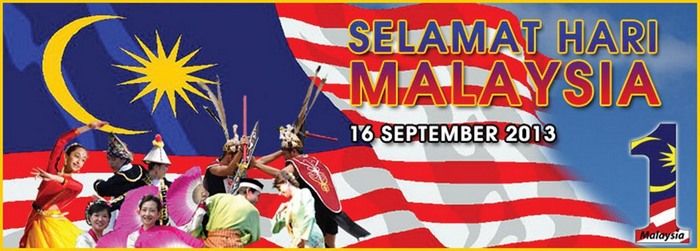Not a Time for Merriment


By Fathol Zaman Bukhari
Over the weeks preceding Merdeka Day on August 31, I have been receiving a steady stream of emails and text messages wishing me a happy and joyous Merdeka Day and Malaysia Day. The two occasions are a fortnight apart, the separation being caused by an unfortunate incident leading to the formation of Malaysia on September 16, 1963. I will not dwell on that as of now, let history be the judge.
The originators of the messages and emails were my former army mates with whom I had the pleasure of sharing many happy and unhappy moments while undergoing two years training at Malaysia’s own Sandhurst, the Royal Military College, Sungei Besi, in the late 1960s. Most of us are in our twilight years although some are reluctant to accept the truth. Reminiscing on our troubled past is one sure way of overcoming our many discomforts, health and relevancy being the major issues.
Humorous incidents were being told and retold, as though they happened a day ago. We could still recall, with clarity, what took place on the drill square, in the swimming pool and on the road where we marched, swam and ran – in that order. And how Incik Wahab, the college Regimental Sergeant Major whose imposing looks sent the chills down our spines, would keep us in check when we were on parade on the college drill square. In the army the drill square is sacrosanct. You are not allowed to walk on it without a reason. You either march in pairs or run when crossing the square or tikar sembahyang, in army parlance.
But the 1960s was, in all honesty, a time of turmoil in newly-formed Malaysia. Although it wasn’t as bad as during the Japanese Occupation (1942 to 1945) and the ensuing Malayan Emergency (1948 to 1960), it was still a period of uncertainty. Hostilities with neighbouring Indonesia had just ended but Communist insurgents were still lurking in the jungles of Perak, Pahang, Kelantan and Sarawak. Their frequent attacks and ambushes kept the security forces on their toes. Furthermore the Vietnam War was in full flight following the failed Tet Offensive of January 1968.
Suddenly the nascent Domino Theory, first announced by President Dwight Eisenhower during a news conference in April 1954, was taking hold and was beginning to have an impact on our defence planners. Should South Vietnam fall, Thailand and Malaysia would be next.
The spread of Communism was unstoppable, so it seemed. Thus a fledgling nation like Malaysia should be prepared for such an eventuality. Threats, real or otherwise, should be treated with caution and undesirable elements should be kept behind bars. Therefore, the existence of laws such as the Internal Security Act, Sedition Act, Official Secret Act and Emergency Ordinance, which were introduced by our British colonial masters, was necessary. The laws helped keep and maintain the peace while the government grappled with the problems on the home front.
But circumstances have changed today. The dreaded terrorists are long gone and so are their trusted followers. As such, are the draconian laws still applicable? Must citizens be held for speaking out? Are their utterances so despicable that they need to be silenced? Is saying something correct seditious?
With all these uncertainties impacting peace-loving Malaysians, will the 51st Malaysia Day on Tuesday, September 16 be any better? I posed this question to my army buddies. Unfortunately, none could give me an honest answer. Maybe they are more concerned for their well-being rather than the well-being of the nation. Or maybe, they just couldn’t care less.
Does it matter if an academician or some opposition politicians are incarcerated for speaking the truth? Obviously, it does not matter to them. “Life goes on,” said my orang kampung, a retired major-general.


